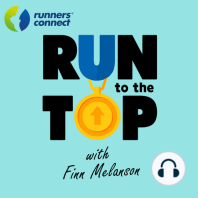42 min listen

How to Protect Your Heart for the Miles Ahead with Dr. John Mandrola, Lennard Zinn and Chris Case
How to Protect Your Heart for the Miles Ahead with Dr. John Mandrola, Lennard Zinn and Chris Case
ratings:
Length:
73 minutes
Released:
Mar 29, 2017
Format:
Podcast episode
Description
The Haywire Heart with Dr. John Mandrola, Lennard Zinn, and Chris Case It’s been said that if a little does a good job, then a lot is even better and too much is probably just right. However, evidence indicates that too much exercise, like that experienced by years of endurance sports, can lead to what is known as “athlete’s heart” - a host of conditions easy for physicians to misdiagnose. In this episode, we are joined by Dr. John Mandrola, Lennard Zinn, and Chris Case, the co-authors of The Haywire Heart. Their book details numerous case studies, including that of co-author Lennard Zinn and the event that nearly killed him. Today, Lennard shares the story of his initial cardiac episode, diagnosis, and his new perspective on fitness as he still participates in endurance sports. Dr. John Mandrola is a cardiac electrophysiologist and an active cyclist who had atrial fibrillation. He works in a private cardiology practice where he specializes in heart rhythm disorders. He is Chief Cardiology Correspondent for Medscape, the leading online resource for physicians and healthcare professionals seeking medical news and expert perspectives. He is a also a regular columnist for theHeart.org and VeloNews magazine. This interview is informative, cautionary, and, at the same time, inspirational. Don’t forget: RunnersConnect members with training plans and / or Masters Subscriptions can get The Haywire Heart for 20% off by logging onto the RunnersConnect Dashboard > Resources > Member Perks. Here are some of the topics we’ll discuss today: What is, and what causes, “athlete’s heart” Various risk factors What can life be like after a cardiac diagnosis How to recognize symptoms How to work with your physician Types of treatment available Questions Guests are asked: 3:46 Was part of your intention with The Haywire Heart to dispel the myth that ‘more is better”? 5:10 What is “athlete’s heart” 7:17 What is the most common heart condition caused by overtraining? 8:53 Lennard, what is your background as a cyclist and what led up to your diagnosis? 14:15 What are some of the symptoms you experience now? 15:16 What do you do when you experience your arrhythmia during exercise? 16:40 Dr. Mandrola, what is the risk of this for endurance athletes? 18:03 Is someone more at risk if they started running at a younger age vs. started later in life? 19:27 What were some of the difficulties in studying this? 21:44 Are there any other factors that might have influenced why there are fewer women with arrhythmias? 23:37 Is there a correlation between women being shorter than men that may reduce the risk in women? 24:05 For how long has this been studied? 24:43 Lennard, do you still cycle competitively? 30:39 How does living at higher elevation affect this condition? 32:21 How long have you been living in Boulder? 35:24 Were there any significant patterns that tied the case studies in the book together? 39:13 What types of treatments are available for arrhythmia? 41:42 Lennard, what type of business do you run in Boulder? 42:30 Were you trying to create an optimistic tone with your book? 43:57 Dr. Mandrola, are there any ways to reduce risk of “athlete’s heart”? 46:28 What would you recommend someone do if they experience symptoms? 50:30 The Final Kick Round Quotes by Guests: “The heart is a muscle, just like the bicep; if you do curls and weight lifting, like endurance exercise, your heart’s going to adapt. And endurance training causes lots of different changes to the heart.” “I was about 15 minutes into this half-hour climb and I looked down and saw that my heart rate was now 220 (bpm) and it just stayed there; I just kept riding. And I felt fine. But after seven minutes of continuing that way and it never came down, then it seemed like that’s not the greatest thing to do to keep going.” “I think in the coming years and decades, we’re going to learn more about women athletes and heart disease because more and more women are doing endurance athletics.”
Released:
Mar 29, 2017
Format:
Podcast episode
Titles in the series (100)
How to Balance Kids, Working Full Time, and Marathon Training- Angie Spencer: If you are listening to this podcast, unless you are my mum or dad, you have probably been bitten by the running bug. It can ... by Run to the Top Podcast | The Ultimate Guide to Running